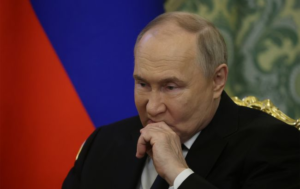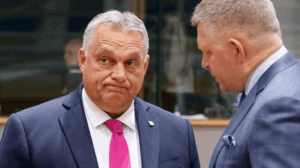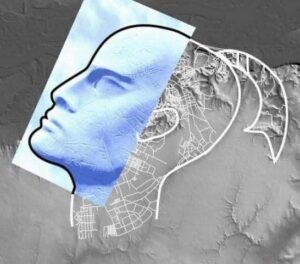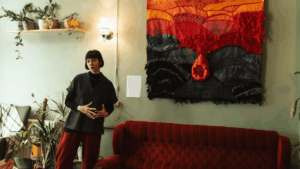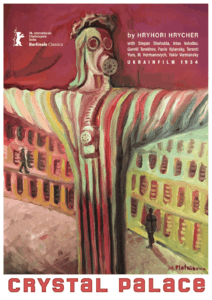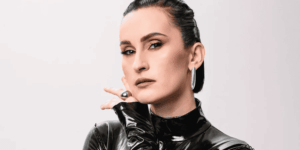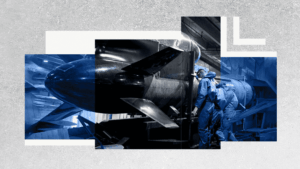Ukrainian singer Jamala discusses Ukraine, Crimea, and Ukrainian citizens courage during Russia’s aggressive warfare in an interview with American – Ukrainian artist and activist Kelsie Kimberlin.
They discussed their documentaries, ways to reach more people, and what gives Ukrainians the strength and will to fight.
Kelsie: Well first I want to say thank you for being here and doing this.
Jamala: Thank you for having me here.
Kelsie: So I did watch — actually, I watched your documentary when I was in the US. And I really liked it. I was actually taking a little bit of inspiration from it to help me with mine. And I think the one question I’d like to ask you personally — because I do respect you as a person and I love your work and what you do. I was wondering do you have any advice for this documentary? What can I do to make it better and help Ukrainian people be heard and understood? Especially for an American audience.
Jamala: You know, there is a song — the love is the only way. I can say that there is 2 ways: love and culture. For me in this world there is two ways, two decisions – love and culture. To speak as much as possible through culture. To show our country as much as possible through love — love for everything: for people, for children, for animals.
For example, like during the flooding of the Zaporizhzhia Hydroelectric Power Station, when the Russians bombed it… there was massive flooding, and so many animals died, so many people were affected.
But even then, we once again showed ourselves as a country that loves its nature. Everyone tried to save the animals — in the forests, little hedgehogs, all of it. There’s even a separate documentary — the one with the dog Patron.
What I mean is that love should be in everything: love in music, love in art. And through that, we can transmit who we are. That’s the only way. Because I think there’s too much Russian propaganda saying that Ukraine is supposedly hostile, aggressive, only defending itself.
But in reality — regardless of ethnic background, sexual orientation — we are all Ukrainians now, defending our land.
And your brother is an example. I’m grateful to him and deeply respect him for giving his life so that we can continue to fight. He gave his life so that we could create.
You — as a singer — make video works that reveal the country. I also, through some kind of access, through winning Eurovision, have platforms like Global Citizen Now, Kennedy Center Honors, or other events I never even expected to attend.
But they also give me a platform to talk about Ukraine, to represent it — wherever I am. From huge events like this year’s Olympic Games in Paris to small concerts. For example, a concert in Georgia with a symphony orchestra, where I sang Crimean Tatar and Ukrainian songs — and we raised a million dollars there.
So, to answer your question about what can be done through music and art — a lot can be done.
Kelsie: When we were traveling, all the same thing, seeing like villages destroyed and I think the one of the weirdest things that I saw was the propaganda… they make people put flyers on their gates — like, “Come join us, we’ll save you from being Ukrainian.” I’ve never seen anything like that in my life — like an Instagram ad with a QR code. It was ridiculous.
And I’ve noticed too — the difference between Ukrainians and Russians: when a Russian soldier gets killed, they don’t come back for him. But Ukrainians are risking their lives to get their people back and return them to their families. That just says a lot about Ukrainian people.
I know that before you’ve sung, you are a singer, and I’m a singer too — we both share a love for music. I’ve noticed that we both use music to talk about other issues.
Do you think that with the war and everything — do you feel like your role in music has changed?
Jamala: Of course. When the full-scale invasion began on February 24, 2022, I was at home with my children. It was supposed to be just another ordinary day, but at 5 in the morning, my husband woke me up and said: “The war has started.”
For the first time in my life, I experienced real shock. I didn’t know what to do. There’s no manual for this — like, the war has begun, here’s what you should do.
Now we’re already brave — we hear the sirens, the bombs are flying, Shaheds are being shot down, we look out the window… But back then, it was truly terrifying.
And in that moment, of course, as a mother and as a singer, I turned to my colleagues — to other singers: “What’s happening? We need to stop this.”
I spoke in Russian, I spoke in English. I tried to tell the world as much as possible that this cannot be happening in the 21st century — right in front of everyone — in a European country, geographically located in Europe.
I made it to my sister in Istanbul and brought the kids there. And you know, I felt like a mother cat who drops off her kittens and goes back to fight. I left the children with my sister and went on.
First — Berlin. March 3rd. It was the national selection for Eurovision in Germany. And that’s when a miracle happened. Why?
Because it was the very first charity concert — the first case like that.
At that moment, I still didn’t know: “Will I be judged? Will my own people say: ‘Why are you singing while others are dying?’”
I didn’t know if it was even possible. Like you ask — can music exist during war? Yes, it can.
I was very scared. But I went out and sang. And it wasn’t even singing — it was like crying, like wailing…
When you’re just overwhelmed by despair. And it was so raw, so powerful, that we raised 67 million euros that day. Can you imagine? That was my first performance in Berlin, and it was a fundraiser.
And when I got on the plane the next morning, I received a message from the ARD Foundation, which was collecting those funds for Ukraine.
They wrote: “Thank you, Jamala, for doing this. We collected 67 million euros.”
I was just in shock. Complete shock. I couldn’t believe it was possible. But if it works — then I’m ready.
I’m ready to go on stage, I’m ready to sing, if it helps.
Then came Romania, then Latvia, Lithuania, the USA, Canada — we toured almost every country in Europe. It was a huge number of events, fundraising concerts.
In Birmingham, we performed together with Ed Sheeran, Paloma Faith, the Spice Girls — they all came together. And then we raised another 16 million.
And then came more and more — sums collected by different foundations for Ukraine. And I, in this case, was simply the instrument.
Like you asked — what can music do? It can do everything.
Maybe it’s not entirely correct from a psychological point of view, but I separated myself — as a creative unit, as the singer Jamala, I was more of an instrument in this case.
I could earn money, I could sell my dress. In Seattle, I went on stage — and for 15,000 dollars, to help buy a prosthetic for one soldier who was simply sitting in the audience watching me, I sold a Valentino dress that I had worn in a music video. I took every possible step that allowed me to remain a musician, to remain a singer, to keep making my music.
For a long time, I couldn’t write songs. But the first thing I managed to write was the song Take Me to a Place.
That was the first piece after three months of silence. I didn’t think I would ever hear music inside me again after the war started.
And I wrote this Poklyk, in which there are the lines: Be brave. Be different. Take me to a place.
Poklyk — Take Me to a Place. A song in both English and Ukrainian.
That was the first one. Then, at the same time, I was working on the album QIRIM. It made it into the top twenty best European albums, and received Ukraine’s highest cultural award — the Shevchenko Prize.
It was also on the Grammy longlist. Unfortunately, it didn’t make it to the shortlist, but for me, that recognition meant a lot. These are like… letters from Ukraine to the world.
Kelsie: That was actually one of the things I really respect about you — is that you use your platform for good, to help other people. And I feel like I look at, sometimes, other celebrities, and I look at the things that they could do to help, or — like — how their words mean so much to some people, and then they don’t use it for good. And so I really admire when people take a stand, and they realize how powerful their words are, and they use it for the better. And not a lot of people do that. And so it’s great that you do that, and it’s inspiring. And honestly I really respect you for that.
Jamala: But sometimes, you know, the artists — they say, like, ‘I don’t want to be in politics.’ But everything is politics.
Kelsie: Everything is politics in this world.
Jamala: Especially when you live in a country where there is a war. You know, you can’t be, like, separate — ‘I’m, like, just an artist here, but I’m not interested in war’ or something like that. Because everything — war is everything now. Even we are looking quite normal — normal life, I mean.
Kelsie: Yeah. I think about when I — my brain chemistry has, like, changed from going down those places. The first night I got back — I won’t lie to you — so I can’t, can’t imagine what it’s like for other people that are living constantly here.
But the first night I got back, I actually — I texted my mom, ‘Goodnight.’ And so, I don’t know if you know — my mom is Ukrainian. It’s not my dad. My mom was born and raised here.
Jamala: What’s her name?
Kelsie:Tetiana. Tetiana Musuk.
Jamala: Hello Tetiana.
Kelsie: So, she was raised in, like, a really, really small village. When I first came to Kyiv, when I was maybe, like, 17, I went, ‘Wow, there’s cities in Ukraine?’ I didn’t know it existed — like, the big buildings.I was, like, shocked.
And it was so sad seeing just all the villages destroyed, mines everywhere. It’s just, like, people can’t even be walking outside their own homes.
But I remember — the first night I got back to Kyiv after that long trip of us going around — I literally had a nightmare in the middle of the night. And it felt so real. I started going like that in my dream. And then I woke up, and I had no clue where I was.
So I just think about, like, what it’s like for — like, especially, like, not just my family, but, like, every Ukrainian person. And children. And just all of that — living that constantly — is the fact that me, who doesn’t really get scared of much… I’m, like — people tell me, ‘Kelsie, you’re a lady, remember?’ And I’m, like, ‘Yeah, okay — being a lady.’ But that usually doesn’t happen to me.
And so that was really weird for me — to experience that and have that happen to me — because I never thought in a million years… It’s just, like — I can’t imagine.
Jamala: Yes, it’s very hard.
Kelsie: Especially talking to kids that also count — they count every time they hear something. Like, Andrei’s daughter does this.
So, I know that you are Crimean. And I know Crimea is currently occupied. I know that must be really hard. And so I was just wondering — I know that Crimea has its Tatar roots. And I was wondering, what do you think it means — for being Crimean and Tatar — for this war and fighting?
Jamala: I always say that I am Ukrainian of Crimean Tatar origin. In English, it would be like Crimean Tatar Ukrainians. And for me, this connection is very important. Exactly like that. When we talk about Crimean Tatars, we can’t just say “Tatars” separately, because that’s… well, very important. Why? Because Crimean Tatars are truly a unique people who fully formed in Crimea. They came into existence as a result of the mixing of more than forty tribes and ethnic groups: Cimmerians, Scythians, Taurians, Greeks, Genoese… but not the Greeks we know today, these were the ones native to Crimea.
And these are very important historical facts, which, in my opinion, have sometimes been conveniently forgotten. Why? Because Russian propaganda has always pushed a narrative like: “Well, there was Catherine, and Crimea belonged to the Russian Empire…”
But it’s important to know that before the Russian Empire and everything that happened there, Crimea already was and remains the only homeland of the Crimean Tatars. It’s the only peninsula that is the native home for the Crimean Tatars.
For me, it was important to represent Ukraine precisely as a Ukrainian of Crimean Tatar origin. I’ll explain why. At a time when Russian propaganda tries to portray Ukrainians as nationalists, fascists, and so on — I appear. And I completely break their theory apart. I am a Ukrainian of Crimean Tatar origin, a Muslim woman who openly supports LGBT rights.
So, all of this somehow… doesn’t fit their logic. And that’s why, wherever I am — for example, at Global Citizen Now, where I was a speaker and had the honor to sing during the awards ceremony — Pharrell Williams was sitting there in the audience.
And there was a moment when they really asked me, “Are you sure you’re Ukrainian?”
I said: “Yes.”
And they said: “We thought Ukrainians looked different…”
And I said: “No. We are all different. But we are united by one goal.”
For me, representing Ukraine, and especially Crimea, has always been important. Even the song “1944,” which won Eurovision in 2016, tells the story of my family, my great-grandmother. During the deportation, she lost her child. And this personal story has always been part of my creativity.
The album QIRIM continues this tradition — telling about my roots. It’s an album that shows the peninsula like a puzzle. We hear how Alushta, Yalta, Sevastopol, Simferopol, Dzhankoy sound… So, we see an entire world before us, not just the peninsula.
This was important to me — because through the songs, we convey the different characters of the Crimean Tatars: those who lived by the sea have one feeling, those in the mountains have a different temperament. And for me, telling about my homeland is an integral part of my art.
Returning to your question: the occupying authorities know exactly where to press to cause pain. Just two months ago, in September, they took away my parents’ and grandfather’s houses. These aren’t some villas. They don’t have monetary value there. But they are pieces of land, the only things my parents had. What I wanted to show my children. And they say: “We will nationalize this and build boarding houses for Russian soldiers.”
It’s very painful. Of course, I want my children to see those houses and the graves of my grandfathers and grandmothers. But the fight continues. They haven’t won yet — and definitely will not win.
Kelsie: So i noticed no direct translation in English for the word “volya”. But I was wondering, what does that mean to you, and what do you think it means to Ukrainian people? And how would you describe it if you were talking to an American and trying to convey the significance of this word?
Jamala: How to describe this feeling? When you enter a place and feel so cozy, you breathe in the air… You can definitely feel it — it’s your mother’s perfume, someone is cooking your favorite dish in the kitchen. You fully fill every step, every moment with life: where you are, what you’re doing, how much joy it brings you. This is freedom. This is probably… again, I won’t speak for everyone, but for me, this is what we live for. To feel alive, to feel free, to feel the energy you can give and receive. This is volya to me. Because people in captivity — they’re gray, they lose their spark, they don’t feel life. They don’t know scents. They… well, you could say they have no drive for life at all. Volya to me is everything. Volya to me is something that cannot be taken away.
So, you may temporarily occupy my houses, trample on my photos, rummage through archives, my childhood things in my home with your heavy hands, but you cannot take my volya. And that is a superpower that makes me a citizen of the world — however grand that sounds. Because with my volya, with my energy, I can go anywhere, because I am free.
Kelsie: So, I think something that weighed on me — that I finally have understood now — when my cousin first joined, he volunteered, he didn’t get called in. So he joined the third assault brigade, and it was something that we fought about. And he would not even say bye to me because of it. So I just wondering, I think the biggest question now… I understand why he did it now. And after I’ve been seeing more and more, I’m not mad at him anymore — it just makes me sad. But I was just wondering, why do you think Ukrainian people keep fighting? Why do you think people are volunteering and staying at the front? And I think the biggest question is just so others understand why Ukrainians keep fighting, even though we’ve had so much loss. What keeps us going? If you would now how to say that, sorry.
Jamala: Why?
Kelsie: Yes, in your opinion why do you think Ukrainians keep fighting and volonteering, giving up their lives?
Jamala: Condolences to your loss. It’s really hard. They are heroes for us. They are fighting for us. They did this for us. They gave us this strength to go further, to fight, to be brave.
I really wish that every loss… Even the word “victim” doesn’t sit well with me. They are not victims — they are heroes, they are superheroes. They give us the opportunity to create, to live, to continue life, to give birth. I never thought I would give birth to a child — my third son — during a war. I didn’t plan it, but it’s also thanks to the fact that our warriors truly protect us day and night.
Why? I’ll tell you this: maybe it sounds very naive, but I believe in fairy tales. I really believe in fairy tales. And for me, I’ve always waited for the ending in fairy tales, where good always wins. And everything we see from the side of our neighbor — the enemy, the occupier — is evil. It’s definitely evil. To say it simply, plainly: it’s evil.
And why do they continue? Because they are defending good. Because they defend volya — the freedom you asked about. They defend love — the love I spoke about today. They defend everything we exist for. And I think this gives them a strong motivation to keep going.
I often ask. I have military friends; I often gather aid for certain brigades, for certain needs. And I ask them: “Doesn’t it annoy you that we sing here, give interviews? Doesn’t it piss you off?” They say: “No, on the contrary, we’re happy that we’re doing everything so you can keep going: living.”
Of course, it’s important not to forget about them. Not to forget to help — to support with words, stories, texts. And, of course, with money and weapons. But to use every moment.
I had an interview in the Netherlands. During a talk show, the host asked me: “What would you say to the Dutch Prime Minister?” I said: “I would ask for weapons.” And that moment was very important to me. Because I never thought I would speak about weapons or ask for weapons.
And why? Because it’s unjust. This cannot happen in front of the whole world. Neighbors came, said: “I like this, I want it, wrap it up for me, please.” They kill people, deport them, steal children. They steal our children. This is a very important message that, if possible, I would like to see explored in your film. More than 20,000 children have not yet been returned to us. They are being raised in Russian families. And this — it’s a horror. It’s terrifying. They have parents. There are parents waiting for them. And they were simply kidnapped. And again, why is this happening? Because it’s unjust. Because it’s pure evil in front of the whole world.
Kelsie: I was just wodering if there is anything that you would like to say to the international community in America — just about Ukraine, but also… I don’t know if you know — I also do run a foundation where people can place orders for nonlethal and lethal drones for Ukraine. And I’ve been partnering up with a prosthetics company who’s opening an office here in Kyiv now. And we’ve worked with soldiers and fitting them for prosthetics. And I was just wondering if you have any advice about, just like, fundraising. Because everything that I do fundraise does come here. And I know a lot of organizations — all the money goes there and it doesn’t. And I’m trying to change that with my kind of thing. And so just if you have any advice for that and also a message that you want to say.
Jamala: I don’t think I can really recommend anything. I just want to say thank you so much for being with us, standing with us. Keep going, be with us till the end. Be with us till we win. We really need you. We need your support, your attention.
You can spread about the war in Ukraine. You can spread the truth about the war in Ukraine. You can give the money — for kids, for medicine, equipment and so on. But don’t be silent. Just don’t be silent. I’m asking you — like a mother, like a singer, like a daughter, like a citizen of country — brave Ukraine.
I don’t know what to add, what to ask for, what to recommend… Just to keep going. Just to keep helping and stand with us until the very end.
That’s very important. Because… yes, I understand what’s happening in the world — well, a lot. Just recently in America — those terrible tornadoes all the time… everything, everything, everything. That’s horrible too, that’s suffering too. And we constantly compete, as cynical as it sounds — we compete with the news, we compete with disasters. Natural ones, the war in Israel, and so on, and so forth.
It’s really a competition. But… a truly important point, a small nuance: this is a war we did not ask for. This is a war we did not provoke. We lived in our country, in our home, on our land. We didn’t take anyone else’s territory. We just lived peacefully in our home. And the enemy came to us.
There is no situation like this in the world. So, it seems logical to me that the world should respond to this. Because — if we don’t stop this now, tomorrow it will continue. It will become a trend. Any big country will want to take a bit of a smaller country. And this could be a trend. We live in a world of trends. So — anything can happen.
I’m not trying to scare anyone. But I think we need to think about it.
Kelsie: And I just want to say thank you for being here. Thank you for coming on camera. And I know that you’re exhausted from travels, so it really does mean a lot to me for you being here. And just… please keep up what you’re doing. And I really hope that eventually you’re able to go back to Crimea and make it your home again.
Jamala: Yeah, honestly, I appreciate your support, your help. It’s priceless. Because, you know… I told you that I’m so respectful for every person who speaks about Ukraine — especially about the movie. Because, you know, it’s a really huge instrument nowadays — this content. It’s really important for us.
Because we understand that now it’s like three years since the invasion, yes? And the further we go, the less attention to us, of course. It’s like… people get used to it. People get used to the pain. People get used to the war. But you know — for me, it’s not over. Even now, we are looking quite well. But every night — I wake up five, six times because of the sirens. I’m… I’m worried about my three kids. My little sons — six years old, four years old, five months…
It’s a mess in my flat. I’m just running — like, what, what do I have to do? What’s flying on us — like drones, Shaheds or something? Ah, okay… keep going, sleep, it’s not… it’s not serious…
Crazy. It’s crazy. But we trust our defense system — we trust them. We give them… we give them our lives.
Tags: Crimean Tatar culture EMPR.media Jamala Kelsie Kimberlin music activism Ukraine resistance ukraine war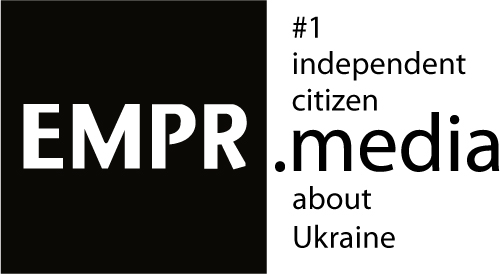
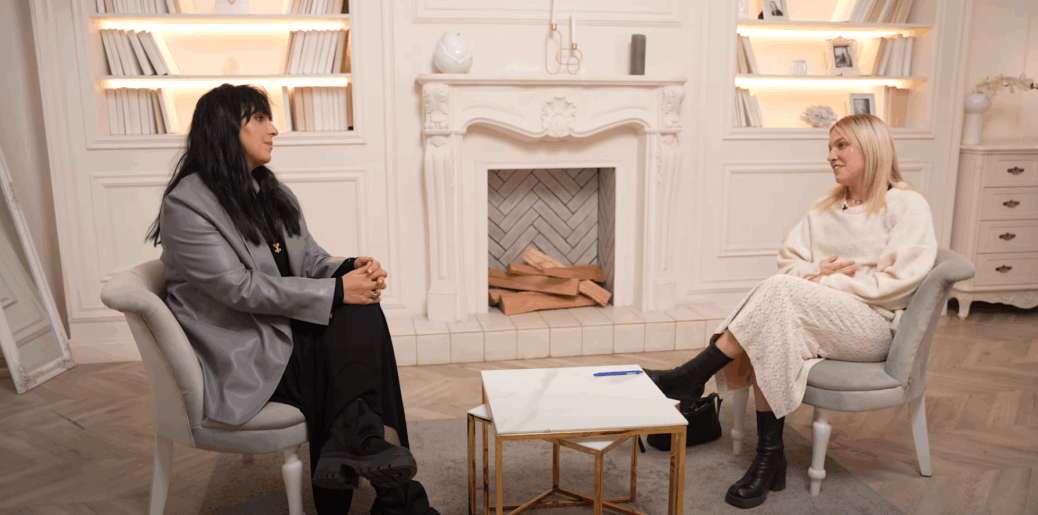

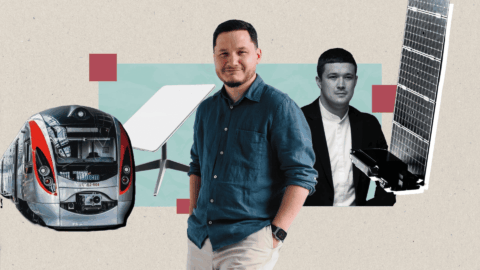
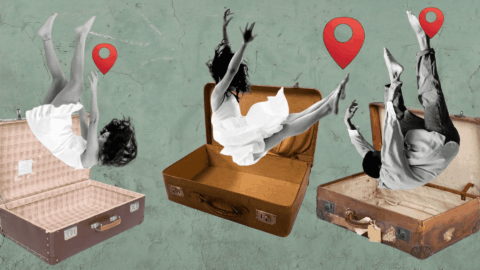
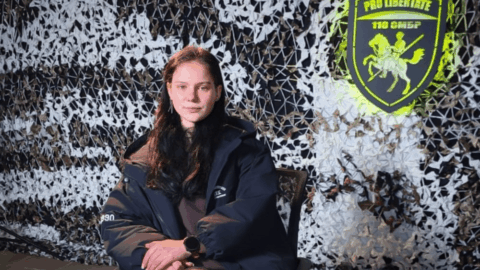
![Kyrylo Marsak in Olympic figure skating gear smiling on the ice at Milan-Cortina 2026, capturing pride, viral hopak atmosphere, and Ukraine energy. :contentReference[oaicite:4]{index=4}](https://empr.media/wp-content/uploads/2026/02/kyrylo-480x270.png)
![Volodymyr Kudrytskyi discusses energy missteps, shelters, and leadership decisions in Ukraine’s energy sector in a cold office interview.:contentReference[oaicite:2]{index=2}](https://empr.media/wp-content/uploads/2026/01/nardep-1-480x270.png)

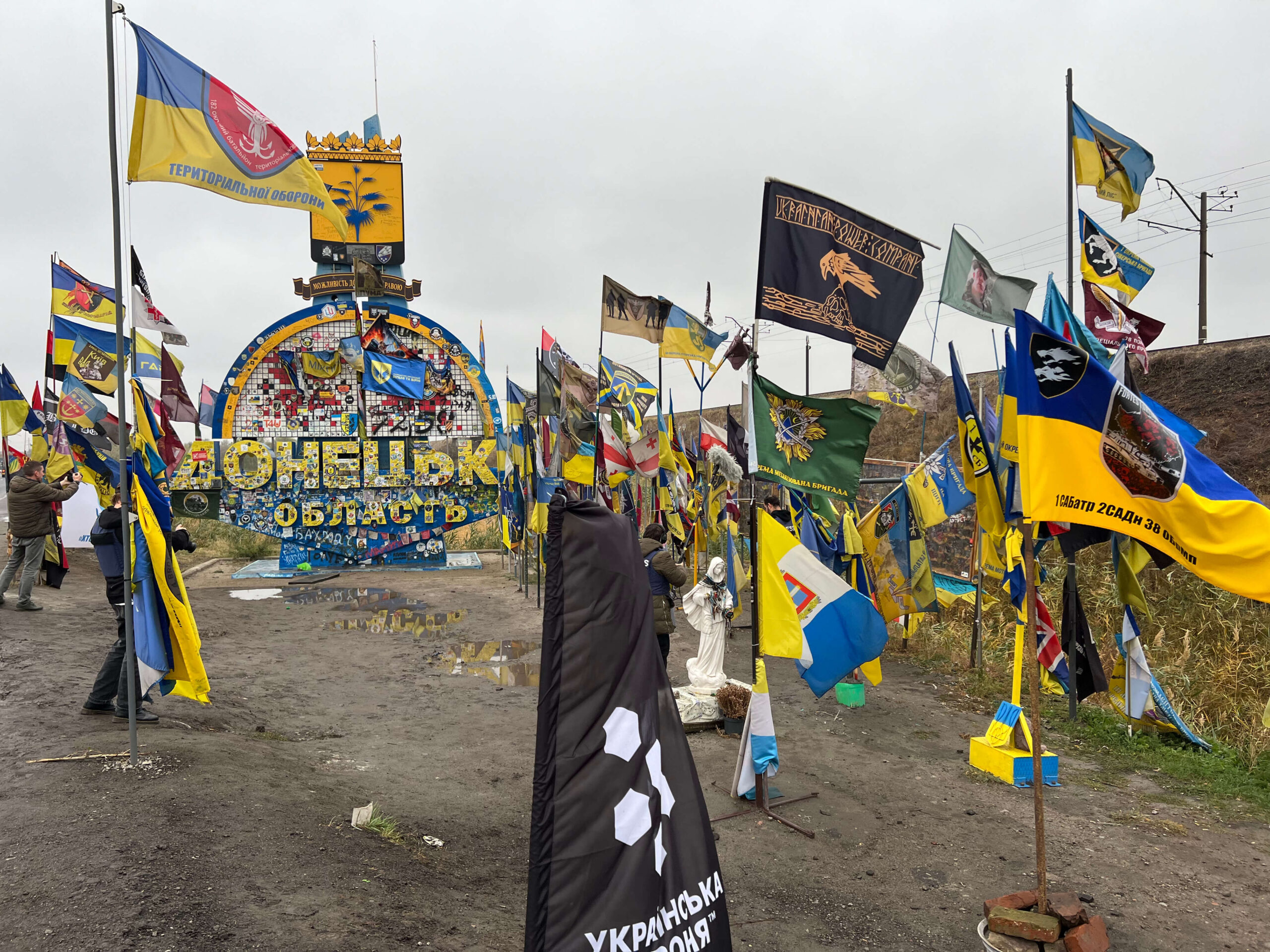
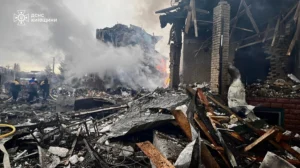
![Volodymyr Zelenskyy and First Lady Olena Zelenska placing candles at the Alley of the Heavenly Hundred memorial in Kyiv to honor fallen Revolution of Dignity heroes. :contentReference[oaicite:2]{index=2}](https://empr.media/wp-content/uploads/2026/02/flags-300x168.png)
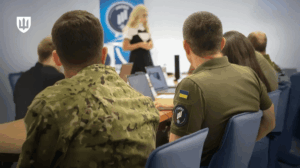
![Austrian Foreign Minister Beate Meinl‑Reisinger and Ukraine’s Foreign Minister Andriy Sybiha meet in Kyiv to discuss humanitarian, energy and reconstruction support. :contentReference[oaicite:2]{index=2}](https://empr.media/wp-content/uploads/2026/02/beata-300x188.png)
